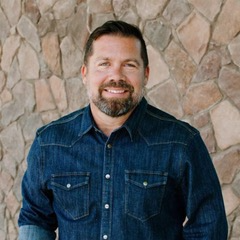Article
3 Lessons I Learned in Year Zero
Brian Bowman
When I planted my first church, I had never heard of Year Zero. We didn’t even have a Week Zero! But I now understand I suffered three important losses by being in a hurry to launch weekly services.

Church planter, I beg you, don’t underestimate the importance of Year Zero – the time between arriving in your new city and launching your new church. I would love to see that time be at least one year, and I know that it’s a huge request.
I understand the temptation to start weekly services just as soon as possible. You likely feel pressure from every corner of your life to “start your church.”
There’s financial pressure. You have friends who would love to begin contributing but are waiting until launch Sunday to come check it out.
There may be social pressure. You told some friends you were going to start a church and it can be a difficult thing to keep answering “Are you still gonna start a church?” with, “We are waiting for the right time.”
There may be pressure from your launch team. The first few people to respond positively to the idea of being a part of a new church are very often in a hurry to get going. They are early adopters and usually apt to take risks. It can be tempting to give in and push the timeline to meet the demand. Very often it can feel like “it’s now or never” because the people who are with you may move on if things don’t start happening.
But as a mentor often reminded me, “I don’t know that I’ve ever seen a church launch too late, but I’ve seen a bunch launch too early.”
I’m a big believer in taking Year Zero seriously. Twenty years ago, when I planted a church in Portland, I had never heard of Year Zero. We didn’t even have a Week Zero!
I met a man in the apartment building on the first day we moved to town and told him we were going to start a church. He asked me when it would begin and I just said, “When’s good for you?” He suggested Thursday, so that’s when we started!
It began with services in my apartment. A few weeks later we had moved to the apartment club house, then a community center, which allowed the church to take root. While there are stories of God’s grace at work in that church, including that man coming to Christ and being baptized, I now understand that I suffered three important losses by being in a hurry to launch weekly services.
First, we lost the opportunity to be sent from a strong Sending Church that was invested in my family and in the health of our church plant. We arrived in Portland fresh off the farm, literally, from rural Oklahoma. At that time I simply didn’t understand the importance of a sending church. I really believed that the more time I spent around other pastors and established churches, the less time I was spending planting a church. The result was many churches and pastors rooting for us, but no one responsible for us.
Here’s what I should have done differently: I should have submitted myself to the large established church in the area and learned to serve, earned their trust and asked to be sent out with their blessing and oversight.
Here’s what I literally want you to do: When researching a city for a possible plant, research what churches you could approach about being responsible for your church plant. If you are already in your planting city, pray about approaching an established church with a heart for church planting. Tell the church you believe churches plant churches and you would like to be under their care. It will require patience, humility and may even require a different financial model than you had planned. Very often established churches will have residency programs for church planters that make this model possible.
Second, we missed the opportunity to develop a strategic plan alongside a local Sending Church. Even the most hurried church planter is usually working off of some kind of plan. But a full year working with an invested sending church who understands the nuances of churched and unchurched cultures in the city is a tremendous advantage.
Here’s what I should have done differently: I should have presented a plan to my Sending Church that outlined the budget, the timeline, the strategy for engaging people and the method for training launch team members. I should have remained in contact with that church and updated the plan as needed.
Here’s what I literally want you to do: Submit your plan to an established church in your city who cares about you and about your church. Take their advice. There is, as Proverbs 11:14 reminds us, safety in a multitude of advisors. Add to that the lesson of Proverbs 18:1, that a man who isolates himself rages against sound judgment.
Third, because we were in such a hurry to begin services, we missed the opportunity to slow the pace of our family and adjust to our new surroundings. Church planters often are moving from one state to another or, at the very least, from one church to another. That kind of change requires time to adjust. What a gift to my family it would have been to slow our pace enough to take in the new school, new people and even new weather we were all experiencing.
Here’s what I should have done differently: I should have made a plan (possibly a residency) in cooperation with a church that felt responsible for us that allowed for our family to attend church while we acclimated to our new city, rather than throwing ourselves into being responsible for all that goes into weekly services. I still could have accepted preaching opportunities as they became available, had time to make genuine friends to build a core team and experienced our new city together with my family.
Here’s what I literally want you to do: Just slow down. Enjoy the fact that you are on a mission to do a new thing in a new place with your family. Don’t miss the family adventure!
I’m thankful for everything I learned in Portland about Year Zero, and that we were able to work each of those ideas into the church plant we are in now in Phoenix. I’m glad I learned my lessons: Slow the timeline. Be sent in strength. Have a strategic plan.




